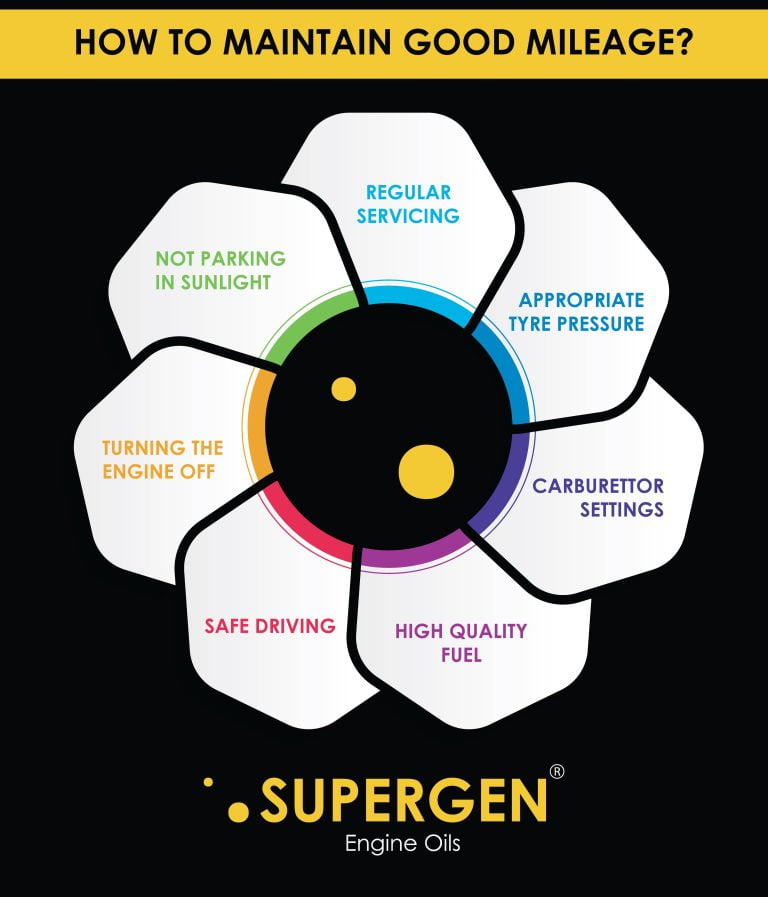How to check and maintain bike mileage
One of the first things that bike owners check when buying a new motorbike is the mileage it provides. Bike mileage essentially refers to the amount of distance a bike can travel on a certain amount of fuel.
This is also known as bike average or fuel economy.
The higher the bike mileage, the better it is, since that means that the bike can travel greater distances on lesser fuel. Having a high bike mileage can save a lot of money on fuel for bike owners.
How does one calculate bike mileage?
Checking motorbike mileage is a simple process that one can do at home, by themselves. Through the following steps, bike owners will get to know the mileage of their bike for one litre of petrol.
- Empty the tank of the bike. You can do this by riding the bike for as long as possible to empty the tank as well as reserve petrol. You can also drain the fuel from the engine if needed.
- Once the tank is fully empty, fill in exactly one litre of petrol in the tank.
- Make a note of the odometer of the bike. Write down how many kilometres the bike has travelled until then.
- Now, ride the bike as normal until it runs out of fuel.
- Once the bike stops due to an empty tank, take note of the odometer again. Write down the new distance that you can see there.
- Subtract the first reading from the second. This will show you how many kilometres your bike travelled on one litre of petrol. This is the bike mileage of your motorcycle for one litre of petrol.

How To Maintain a Good Mileage In Motorbike?
When you purchase a bike, chances are it has a good mileage for the first few years. However, over time and with wear, bike mileage can reduce a lot.
This increases costs as the bike takes up more and more fuel to travel the same distances. However, while a little bit of reduction in mileage is natural, there are ways to maintain good mileage. Here are some things that can help you keep up the good mileage on your bike:
Regular servicing
If a bike is not serviced from time to time, or every few thousand kilometres, the wear and tear of the engine and damage to other parts can add up.
If the engine is not functioning optimally or if other parts are damaged, it causes stress to the bike and increases its load. This will cause the bike to use up more fuel, thus reducing mileage.
Thus, getting the bike serviced and performing basic tasks like oil changes, filter changes, wheel alignments, engine checks, etc. can help maintain the mileage.
Appropriate tyre pressure
Flat tyres or those that aren’t properly inflated can cause the bike to use up more fuel.
This is because when tyres have low air pressure, they drag a bit and don/t move as well as they’re supposed to.
This puts excess pressure on the engine and can reduce bike mileage. It is important that you check tyre pressure regularly and keep the tyres well inflated.
Carburettor settings
The carburettor is an important part of the engine and it determines the engine’s performance to a certain extent.
When you adjust the settings on the carburettor, you are able to optimise the engine’s performance.
Thus, tuning the bike well can go a long way in maintaining a good mileage.
High quality fuel
Low quality fuel does not work as well as high quality variants and thus needs to be refilled more often.
This reduces the mileage of the bike. Using unleaded fuel that is of premium quality is a good way to ensure that fuel lasts longer and the mileage is maintained.
While higher quality fuel is more expensive, by improving the mileage of the bike, it ends up saving more money for you that you spend.
Safe driving
Rash driving, excessive and sudden braking, excessive speeding, revving the engine unnecessarily, etc. are all actions that put extra load on the engine.
This causes the engine to use up more fuel and thus reduces the mileage of the bike. Driving safely, at appropriate speeds and avoiding unnecessary load to the engine can help maintain the bike mileage.
Turning the engine off
When the bike is parked at a signal or if you have to stop the bike to wait for someone, it is never a good idea to keep the engine idling. Idling burns fuel even though the bike is stationery. Thus, it is a waste of fuel and can reduce bike mileage by a lot.
Furthermore, idling is also bad for the environment since it gives rise to unnecessary emissions. Thus, always switch off the engine when the bike is stationary.
Not parking in sunlight
If a bike is parked in direct sunlight for a long time, it can cause the fuel in the tank to evaporate. This means that the fuel gets wasted and cannot be used by the bike to run properly.
Naturally, this reduces the bike mileage. Thus, it is wise to always park your bike in a garage or in shade to conserve fuel and maintain mileage.
Conclusion:
Bike mileage is an important factor to consider for any bike owner. It can be measured by checking the odometer before and after filling the tank with a certain amount of petrol and then subtracting the two readings.
A good mileage on your bike can go a long way in reducing your costs and saving money. Regular servicing, well-inflated tyres, good driving, avoidance of idling or parking in sunlight, etc. are all simple tips that you can keep in mind to maintain the bike mileage over time.



